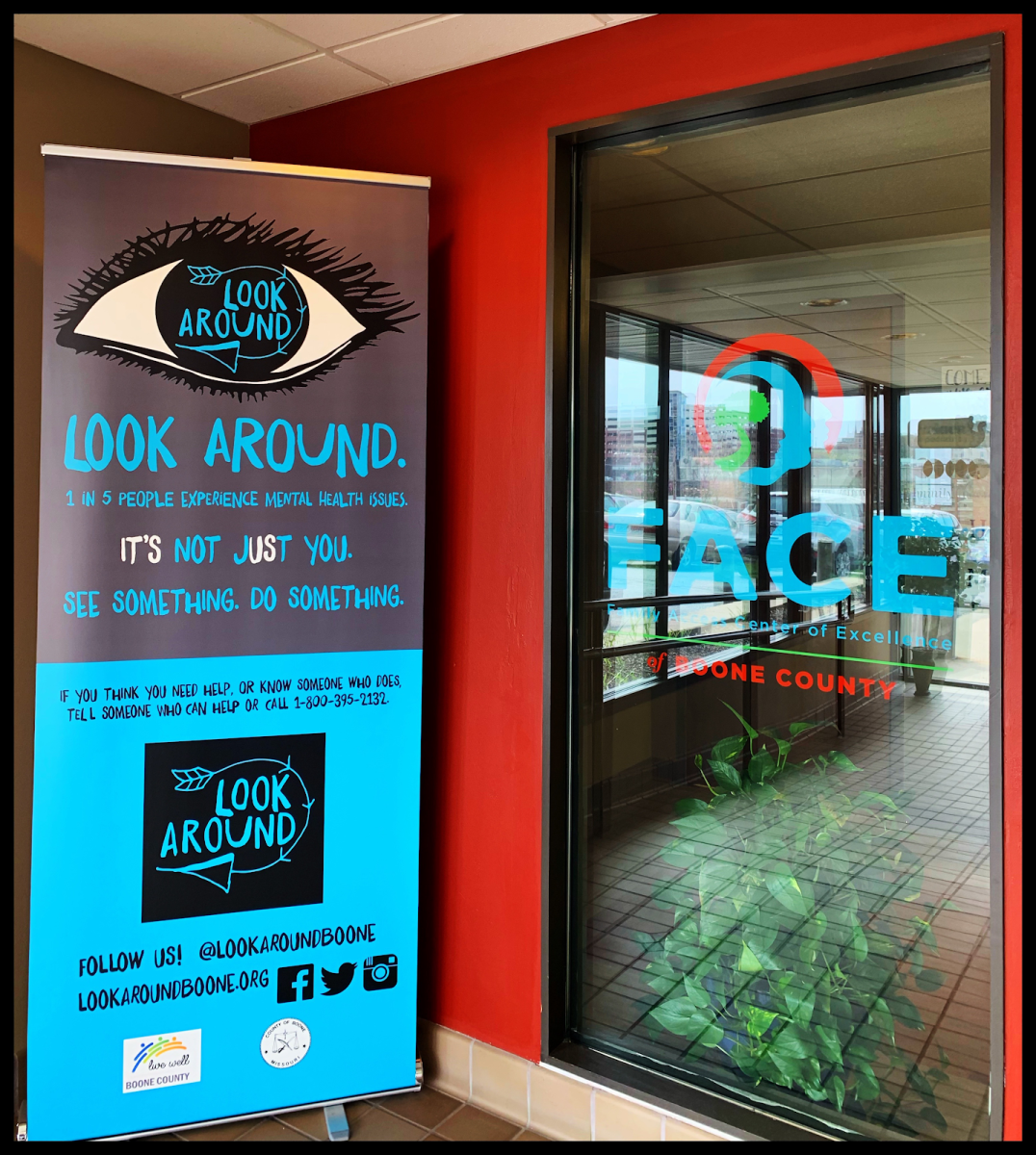There is identifying that a problem exists, then there is actively taking steps to impact policies and practices for change. In 2012, the citizens of Boone County did just this with the Family Access Center of Excellence.
FACE is a free, cross-sector implementation center aimed at providing a coordinated, transparent and collaborative approach to improving access to quality mental health services according to its website.
According to FACE’s website, this organization grew from Proposition 1, which was initiated by Putting Kids First, a children’s advocacy program. This created the Children’s Services Fund, which uses a quarter-cent sales tax to fund programs and services such as FACE that target the social, emotional and behavioral health of Boone County children and youth, making it a true community effort.
Aaron Thompson, Ph.D., is the lead and principal investigator for FACE and also serves as an evaluation consultant. Thompson is an associate professor in the MU School of Social Work.
“The motivation for FACE came from a 2014 Community Impact Study that showed us that families did not know where to get services, they did not know the choices that were available, and even if they knew, they had multiple barriers to access services,” Thompson said.
Some of these barriers that Thompson mentioned include transportation, lack of insurance or underinsured status and the inability to pay for these services.
“FACE provides more than mental health services. FACE also helps families link to basic needs like food and utility or rent vouchers, as well as employment assistance programs,” Thompson said.
FACE uses the family check-up and motivational interviewing techniques to enhance engagement and ownership for families in the treatment process. Thompson attributes the success of FACE through the use of evidence-based approaches that are child-focused and family systems assessments, while connecting families to services of their choices, with ongoing follow up to service attainment.
“FACE accomplishes the provision of high-quality services through accepting any and all families in Boone County, regardless of their concern or socio-economic status,” Thompson said.
Additionally, other members of FACE’s leadership team include Wendy Reinke, Ph.D, and Keith Herman, Ph.D, both from the College of Education, serving as co-principal investigators and providing consultation and evaluation services.
“One of the most beneficial aspects of FACE for Mizzou is the visibility and meaningful engagement with our community,” Herman said. “We are all involved, especially through paying taxes, and it gives us a sense that we are coming together to solve a big real-world problem.”
“FACE is a one of a kind organization, there is no one else that does the same work. We are very innovative and all of our approaches are evidence-based, ensuring improved outcomes,” Reinke said.
In a display of genuine interdisciplinary collaboration, FACE’s leadership team also consists of the director for the Center for Evidence-Based Youth Mental Health , Kristin Hawley Ph.D, and Clark Peters Ph.D, JD, AM, an associate professor in the School of Social Work and Harry S. Truman School of Public Affairs. Peters is a co-investigator and legal consultant at FACE and has presented, taught and written widely on issues of juvenile justice, foster care and child welfare.
“Through FACE, a vision has been realized that led to increased collaboration and improved services,” Peters said. “It provides an opportunity to identify where policies don’t work well simply by applying legal sanctions.”
Throughout most systems, there is a hierarchy that usually leads to disparities of those who are being served. There is a similar phenomenon in social justice and mental health provision realms.
“There are disparities within juvenile justice systems, especially for marginalized groups,” Peters said. “However, through FACE, we are able to step in and connect the dots when there is a failure in services or policies that are negatively impacting these kids and their families.”
Peters also collaborates with Children’s Division, the state’s child welfare and foster care agency, drawing on the lessons provided by FACE to advocate for policies that are not specific to Boone County, but rather apply to the whole state.
According to a Data Dashboard Report on FACE’s website, Boone County residents see a return on their investment in FACE. Just in 2018 alone, FACE has tended to a total of 323 referrals, which is 100% of those received; a total of 178 assessments, which is 55% of the referrals; and linked 334 families to high-quality services.
“For families that have stuck with FACE’s process, overall symptoms, concerns and severity decreased while coping skills improved,” Thompson said.
Recently, FACE has launched an ongoing initiative called Look Around which means being actively aware and supporting neighbors, friends and loved ones who are experiencing mental health issues.
Look Around is focused on the concept that good mental health is an everybody issue, emphasizing that it’s OK to ask for help. It is funded by Columbia/Boone County Public Health and Human Services and supported by all six public school districts in Boone County.
“Look Around data from 11,478 youths grades 6 to 12 showed that this initiative increased youth responses, awareness and acceptance of mental health,” Thompson said. “The data also shows that there was an increase in willingness to seek help.”
FACE incorporates awareness about mental health through various outreach programs including social media, creative contests and other forms of connection throughout Boone County. As their motto declares, “See something. Do something.”
_Edited by Janae McKenzie | [email protected]_








